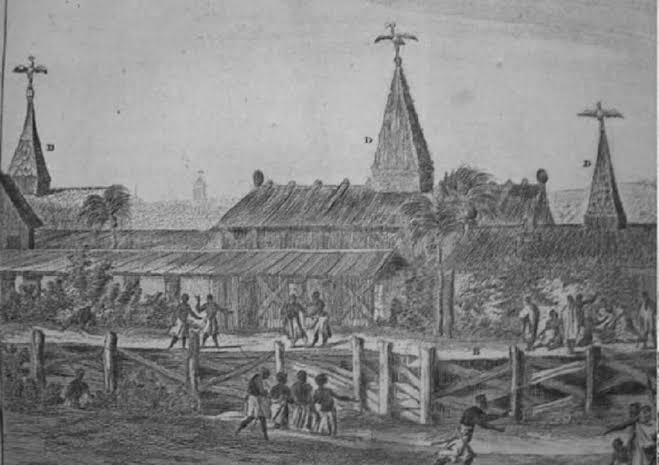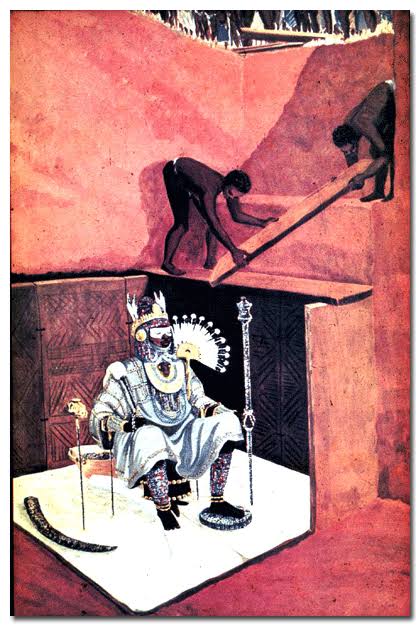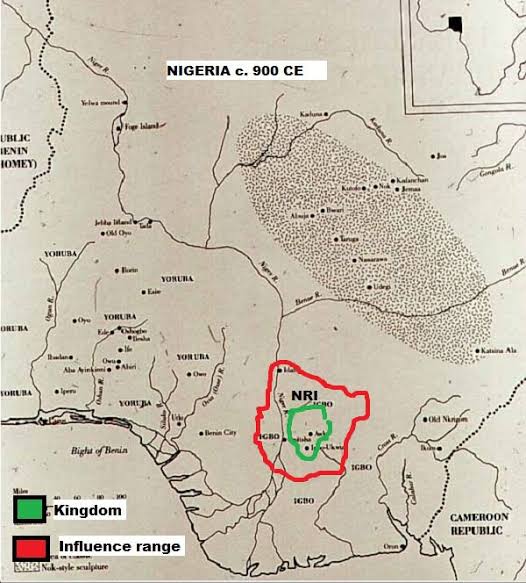The Nri civilization, an ancient Igbo culture that thrived in Nigeria, holds a captivating story waiting to be discovered. This article aims to delve into the intricate socio-political structure, religious practices, remarkable artistic achievements, and economic influence of the Nri civilization. By exploring the enduring legacy of the Nri people, we can gain profound insights into the cultural tapestry of the Igbo community and its significance in shaping the history of West Africa.
The Marvels of Nri Civilization: Unraveling the Socio-Political System
The Nri society was characterized by a complex socio-political structure that shaped their way of life. At the pinnacle of their society was the Eze Nri, who held both political and spiritual authority. The Eze Nri was revered as a divine leader, serving as the custodian of religious and cultural practices. This hierarchical structure provided a framework for governance, with various levels of leadership and administrative roles. The Nri civilization had a sophisticated system of governance that ensured the smooth functioning of society.
One of the key aspects of Nri civilization was the administration of justice. They had a well-established judicial system that incorporated customary laws and traditions. Disputes were resolved through an elaborate process involving mediation, arbitration, and decision-making by the Eze Nri. The authority of the Eze Nri extended beyond the realm of governance, encompassing aspects of spirituality and ancestral reverence.
Ancient Igbo Religion: Insights into Nri Spiritual Beliefs
Religion played a central role in the lives of the Nri people, shaping their worldview and guiding their daily activities. The Nri people worshipped a pantheon of deities and ancestral spirits, believing in the existence of a supreme deity called Chukwu. They viewed the spiritual realm as interconnected with the physical world, and religious practices were intertwined with various aspects of their lives.
The Nri civilization practiced a form of ancestral worship, believing in the presence and influence of their departed ancestors. Ancestors were revered as guardians and mediators between the living and the divine. Rituals and ceremonies were conducted to honor and communicate with the ancestors, seeking their guidance and blessings.
The Nri people also performed sacrifices and offerings to appease the deities and seek their favor. Various rituals, including divination, were conducted to gain insight into the spiritual realm and obtain guidance for important decisions. Diviners played a crucial role in interpreting signs and symbols, providing spiritual counsel to individuals and the community as a whole.
The religious practices of the Nri civilization were deeply ingrained in their social fabric, influencing their ethics, morality, and communal relationships. The belief in divine intervention and the interplay between the physical and spiritual realms shaped their worldview and guided their actions.
Nri Civilization’s Artistic Achievements
The Nri civilization was renowned for its artistic brilliance, particularly in the creation of bronze sculptures and masks. These masterpieces not only showcased the exceptional craftsmanship of the Nri artisans but also held deep cultural symbolism.
Bronze sculptures created by the Nri civilization depicted human figures, animals, and mythical creatures. These sculptures were intricately detailed, capturing the essence of the subjects they represented. The Nri people used bronze as a medium to express their cultural identity, religious beliefs, and historical narratives.
The bronze masks of the Nri civilization were another remarkable artistic achievement. These masks were often used in ceremonies, masquerades, and rituals, serving as a means of communication with the spiritual realm. Each mask had its unique design and symbolism, representing specific deities, ancestral spirits, or important cultural figures.
The Nri civilization’s artistic achievements were not only aesthetically pleasing but also carried cultural messages and historical significance. They served as a visual representation of the Nri people’s values, beliefs, and aspirations. The exquisite craftsmanship and attention to detail reflected the Nri civilization’s dedication to preserving their cultural heritage through art.
Nri’s Influence in West African Economies
The Nri civilization’s strategic location along major trade routes played a significant role in their economic influence and engagement in commerce. The Nri region was situated in a fertile area with access to natural resources, making it an attractive hub for trade and economic activities.
The Nri people actively participated in regional trade networks, exchanging goods and commodities with neighboring communities. They traded in a variety of items, including palm oil, salt, pottery, textiles, and agricultural produce. The Nri civilization’s economic prowess contributed to the growth and prosperity of the region, establishing it as an important center of commerce.
The Nri civilization’s economic influence extendedbeyond local trade networks. Their involvement in long-distance trade allowed them to establish connections with distant regions, including the trans-Saharan trade routes. The Nri people played a crucial role in facilitating the exchange of goods between different parts of West Africa, contributing to the development of regional economies.
The economic success of the Nri civilization was not solely based on trade. They also practiced agriculture, cultivating crops such as yams, palm oil, and various vegetables. The surplus agricultural produce not only sustained their community but also provided commodities for trade.
The economic activities of the Nri civilization had a profound impact on the wider West African region. Their engagement in trade networks helped foster cultural exchange, influenced economic policies, and contributed to the development of commercial centers in the area.

Nri Civilization’s Enduring Heritage
The Nri civilization left a lasting legacy that continues to shape the cultural identity of the Igbo people. Many Nri traditions, rituals, and customs have been passed down through generations, contributing to the rich cultural tapestry of contemporary Igbo society.
The influence of the Nri civilization can be seen in various aspects of Igbo culture. Traditional music and dance forms, such as the Ekwe and the Agbacha, have their roots in the Nri civilization. These artistic expressions serve as a means of cultural preservation and a celebration of the Nri heritage.
The Nri civilization’s socio-political system also had a lasting impact. The concept of the Eze Nri, the divine leader with political and spiritual authority, influenced the governance structures of subsequent Igbo societies. The Nri model of governance provided a foundation for leadership and administrative practices in Igbo communities.
Furthermore, the religious beliefs and practices of the Nri civilization continue to shape the spiritual landscape of the Igbo people. Ancestral worship, reverence for deities, and the interplay between the physical and spiritual realms remain integral aspects of Igbo spirituality.
The enduring heritage of the Nri civilization serves as a reminder of the resilience and continuity of the Igbo community. Despite the challenges and changes over centuries, the cultural legacy of the Nri civilization has been preserved and celebrated, contributing to the vibrant diversity of Nigerian and West African cultures.
The Nri civilization stands as a testament to the ancient Igbo culture’s richness and complexity. Their socio-political system, religious beliefs, artistic achievements, and economic influence have left an indelible mark on the cultural heritage of the Igbo people and the wider West African region. By unraveling the mysteries and treasures of the Nri civilization, we gain a deeper appreciation for the historical and cultural significance of this ancient African civilization.
The legacy of the Nri civilization serves as a bridge connecting the past with the present, reminding us of the enduring spirit of the Igbo community. It highlights the importance of cultural preservation and the value of understanding our historical roots. The Nri civilization’s contributions to art, governance, religion, and trade continue to inspire and shape the cultural landscape of contemporary Igbo society, showcasing the beauty and resilience of African civilizations.

